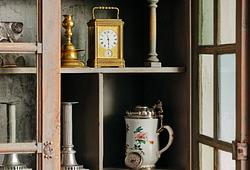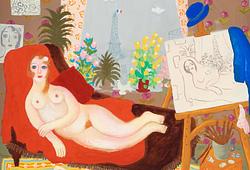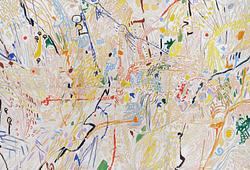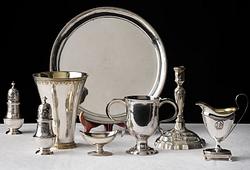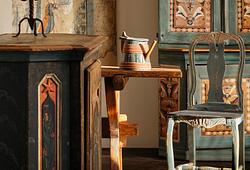Ernst Josephson
"Kökspigan"
Canvas 56 x 46 cm.
Provenance
Mrs Ellen Josephson, widow after businessman and art collector John Josephson, cousin of the artist.
Stockholms Auktionsverk, Kvalitetsauktion 15 - 18 November 1983, cat. no 526.
Exhibitions
Liljevalchs konsthall, Stockholm, "Ernst Josephson - Minnesutställning", 10 February - 11 March 1951, cat. no 82 (Mrs Ellen Josephson listed as the owner).
Literature
Erik Blomberg, "Ernst Josephsons konst -Historie-, porträtt- och genremålaren", SAK, 1956, mentioned and illustrated page 151.
Hans Henrik Brummer, "Ernst Josephson", Prins Eugens Waldemarsudde, Borås, 1991, mentioned in the list of works p. 175.
More information
Copy after a painting by Rembrandt Harmensz. van Rijn in the collections of the National Museum, Stockholm NM 584.
As a winner of the Royal Medal, the young artist Ernst Josephson headed for Paris in May 1876 and then on to Amsterdam. In Paris he visited the salon painter Léon Bonnat who showed him a copy of Rembrandt's 'The Night Watch'. Josephson was captivated by the realism, the warm light and the saturated colours. He copied 'The Night Watch' at the Rijksmuseum in Amsterdam, and after returning to Sweden, he copied the National Museum's Rembrandt paintings, including 'The Kitchen Maid'.
Rembrandt's painting 'The kitchen maid' came into Swedish ownership at the end of the 17th century and was then called 'Study of a boy supporting his head in his hand'. It was owned in the 18th century by Eva Bielke (1706-1778), daughter of Carl Gustaf Bielke. King Gustav III bought "The Kitchen Maid" along with several other works of art in 1779 at an auction of her estate. In the National Museum's collections, it was labelled 'Portrait of a young woman in a red sweater, called Rembrandt's kitchen maid' in 1861. Today the title is 'Girl in a window, "The kitchen maid"' (NM584).






